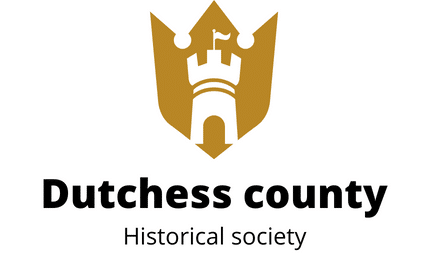What Strategies Can UK Independent Bookstores Use to Thrive in the Age of E-readers?

In this digital age, bookshops face fierce competition from online bookstores and e-readers. According to the forecast, the market share of print books will potentially decline as the young, tech-savvy community increasingly prefer digital reading. So, how can independent bookshops in the UK withstand these market forces and keep their businesses afloat? Let’s delve into the strategies they can adopt to thrive in this challenging climate.
Capitalising on the ‘Printed Book’ Experience
Despite the surge in digital reading, a significant segment of people still prefer the traditional reading experience. They savour the feel of turning a page, the smell of print on fresh paper, and the sight of a bookshelf filled with colourful book spines. These are experiences that e-readers cannot replicate.
Topic to read : What Are the Best Practices for Integrating AI-Powered Chatbots in UK Health Clinics?
Independent bookshops can capitalise on this by creating a welcoming reading environment. They could include cosy reading corners, cafés, and even organise book readings or author signings to draw people in. This can transform the bookstore from a simple retail outlet to a community hub, attracting both avid readers and those looking for a unique, relaxing place to spend their time.
Enhancing Customer Service
Superior customer service can significantly set independent bookshops apart from online bookstores and e-readers. Personalised recommendations, a knowledgeable and friendly staff, and a warm, inviting atmosphere can make a bookstore a favourite destination for book lovers.
Also to discover : How to Optimize the Supply Chain for UK-Based Ethical Fashion Brands?
Bookshops can use the knowledge of their staff to create informative book displays, themed around current events or popular genres. They can also offer personalised book recommendations, based on a customer’s reading history or interests. This level of personalised service can generate customer loyalty, encouraging repeat visits and purchases.
Offering Unique and Local Books
Another competitive advantage that independent bookstores can leverage is offering unique and local books that may not be readily available online or in larger bookstores. These can range from books by local authors, independently published books, or books about the local area or culture.
Promoting such books not only supports local authors and publishers, but it also provides customers with unique reading material that they may not find elsewhere. This strategy could drive traffic to the bookstore and help carve out a niche market segment.
Incorporating Technology and Online Sales
While it may seem counterintuitive, incorporating technology can be a game-changer for independent bookshops. This can range from having an online presence, allowing customers to browse and purchase books online, to using technology in-store to enhance the customer experience.
Having an online bookstore can provide customers with the convenience of online shopping while supporting a local business. It can also extend the reach of the bookstore beyond its physical location, potentially attracting customers from further afield.
In-store, technology can be used to streamline the checkout process, provide information about books, or even offer e-books for customers who prefer digital reading. This integration of technology can attract a wider customer base, appealing to both traditional book lovers and tech-savvy readers.
Hosting Book-Related Events
Hosting book-related events, such as book clubs, author signings, readings, or children’s story times, can draw people into the store. These events can foster a sense of community, making the bookstore a cultural hub in addition to a retail outlet.
Children’s events can be particularly beneficial, as they encourage young readers and their parents to visit the bookstore. This can help cultivate a new generation of book lovers, who will hopefully continue to support the bookstore in the future.
In conclusion, though the market figures may seem daunting, independent bookstores have a unique appeal that can’t be replicated by e-readers or online bookstores. By capitalising on this, enhancing their customer service, offering unique books, incorporating technology, and hosting events, independent bookstores can not only survive but also thrive in the age of e-readers.
The Power of Social Media and Collaborations
Social media has become a powerful tool in today’s digital world. The influence it holds over consumer behaviour is undeniable. Independent bookstores can harness the power of social media to reach a larger audience, discuss reading habits, and create a vibrant, online community.
Social media platforms like Instagram, Facebook, and Twitter can be used to showcase new arrivals, announce book signings, and promote in-store events. They can also serve as platforms for interactive content such as book reviews, reading recommendations, and discussions about books and authors.
Collaboration with local businesses, schools, libraries, and even other bookstores can also be a strategic move. Joint events, cross-promotion, and combined discount offers can drive traffic to all involved businesses, fostering a supportive community. Moreover, collaborations with local authors or publishing houses for book launches, signings, or readings can draw in more customers.
A significant section of the market report suggests that young adults and teens are heavy social media users who also show a keen interest in reading. Engaging this demographic through platforms they frequently use can be an effective strategy to increase footfall and book sales.
Embrace Audio Books
The audio books market has observed a surge in recent years. More and more readers, especially those leading a busy lifestyle, are turning to audio books due to the convenience it offers. Independent bookstores can make the most of this growing trend by offering a selection of audio books in their stores.
While ebooks and audiobooks may seem like a threat, they can also be an opportunity. Independent bookstores can partner with audio book platforms to offer subscription services or discounts to their customers. In-store listening stations can also be set up, allowing customers to sample audio books, much like they would with print books.
The integration of audio books into an independent bookstore’s offering can appeal to an additional segment of the market, thus broadening the store’s appeal. As per the forecast market, the popularity of audio books is expected to rise, and it is vital for independent bookstores to adapt to this change.
Conclusion
The recent market forecast may paint a challenging picture, but it is essential to remember that the appeal of independent bookstores is far from lost. The pleasure derived from browsing through a print book, the charm of a high street bookstore, and the value of personalised customer service are experiences that are irreplaceable.
Independent bookstores can continue to flourish in the age of e-readers and online bookstores by adapting to the changing landscape. Embracing technology, utilising social media, enhancing customer service, offering unique books, including audio books, and hosting community events are crucial steps towards a thriving business.
The market might be witnessing an increase in the popularity of ebooks and audiobooks, but the joy derived from a physical book, the sense of community that a bookstore offers, and the personalised touch that independent bookstores bring to the table will always hold a special place in readers’ hearts.
Overall, while the books market is evolving, it certainly does not spell the end for independent bookstores on the high street. By understanding their unique selling points, leveraging current trends, and remaining flexible to changes, independent bookstores can continue to be cherished spaces for book lovers in the UK.
